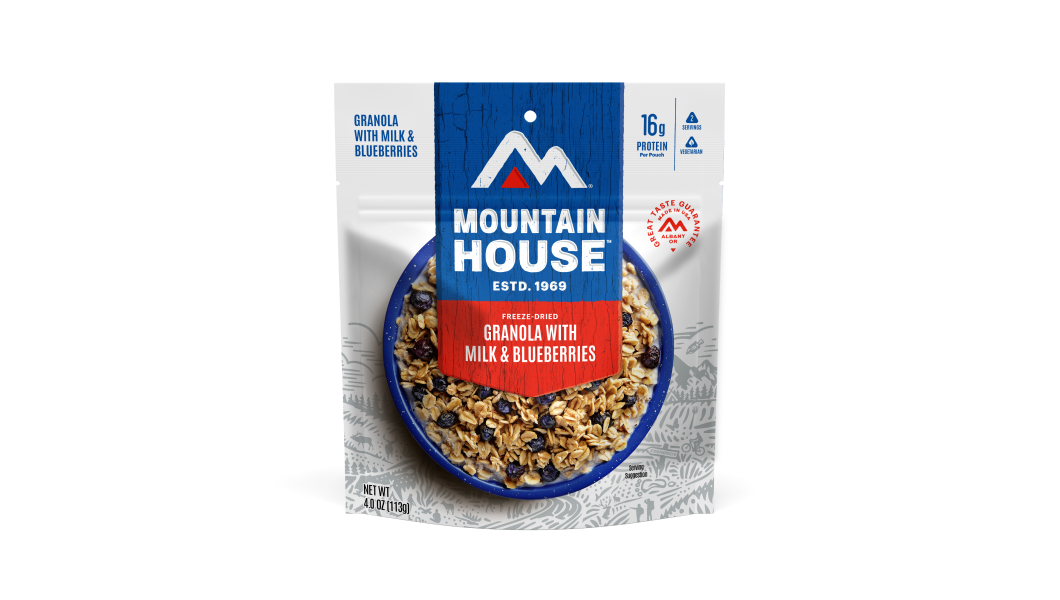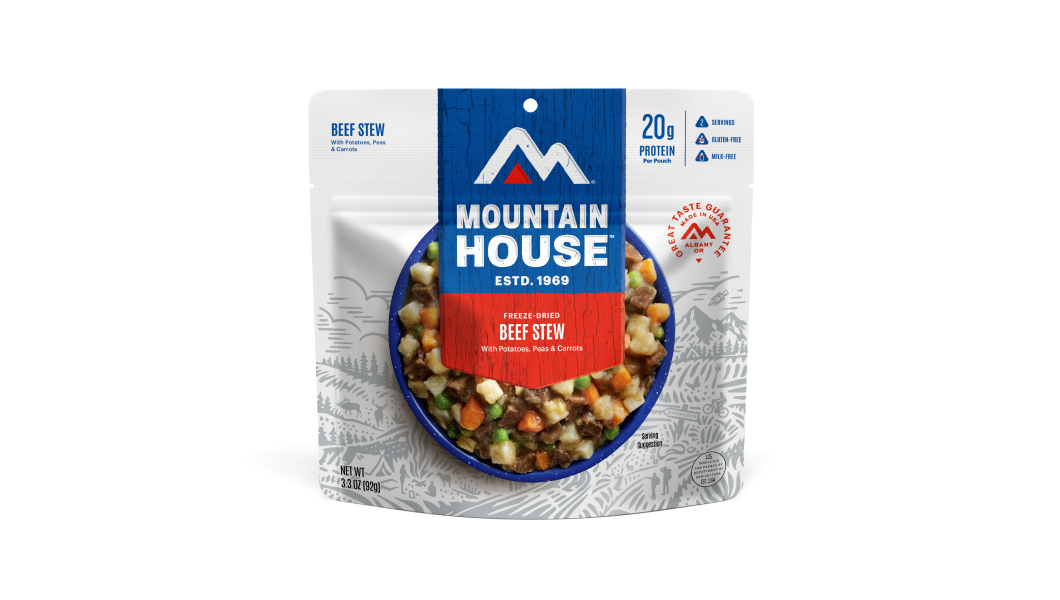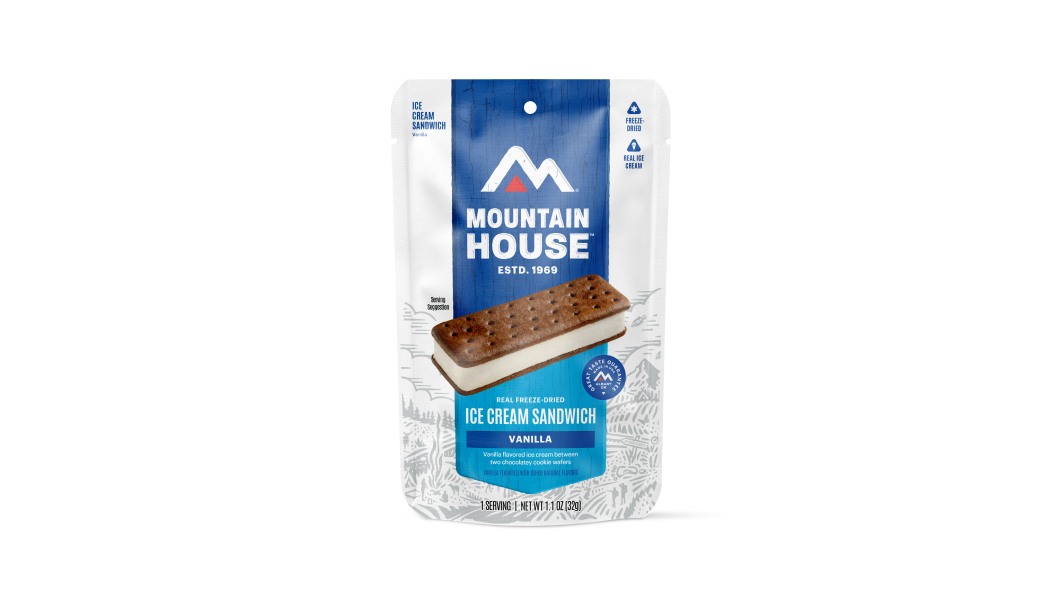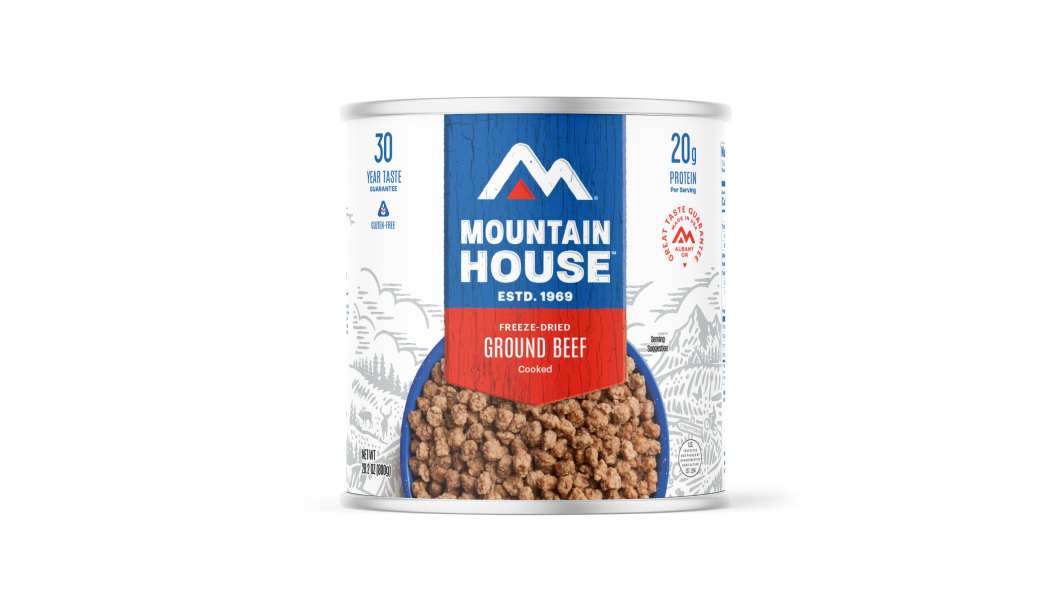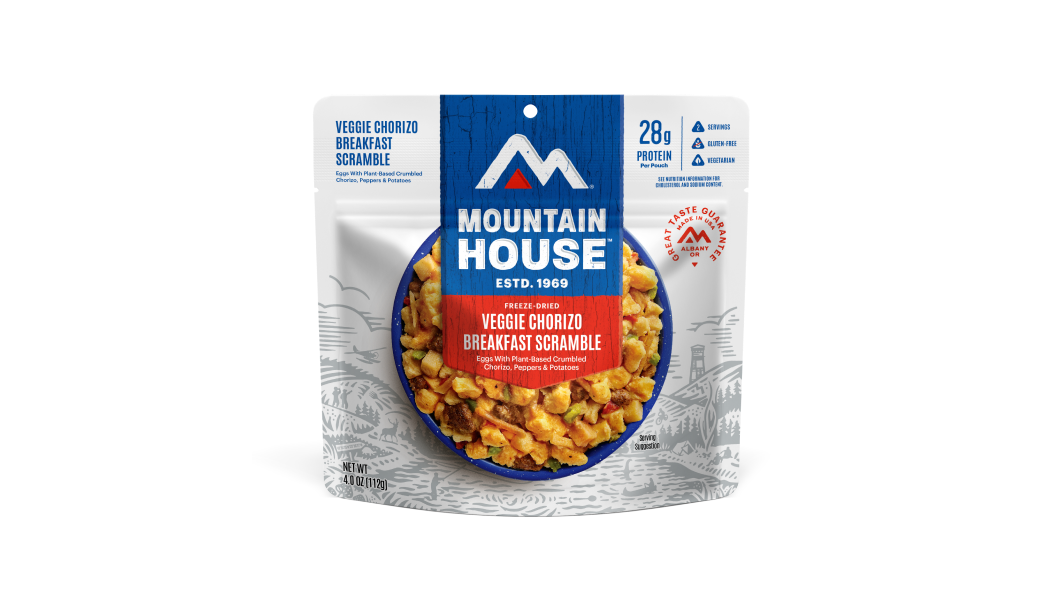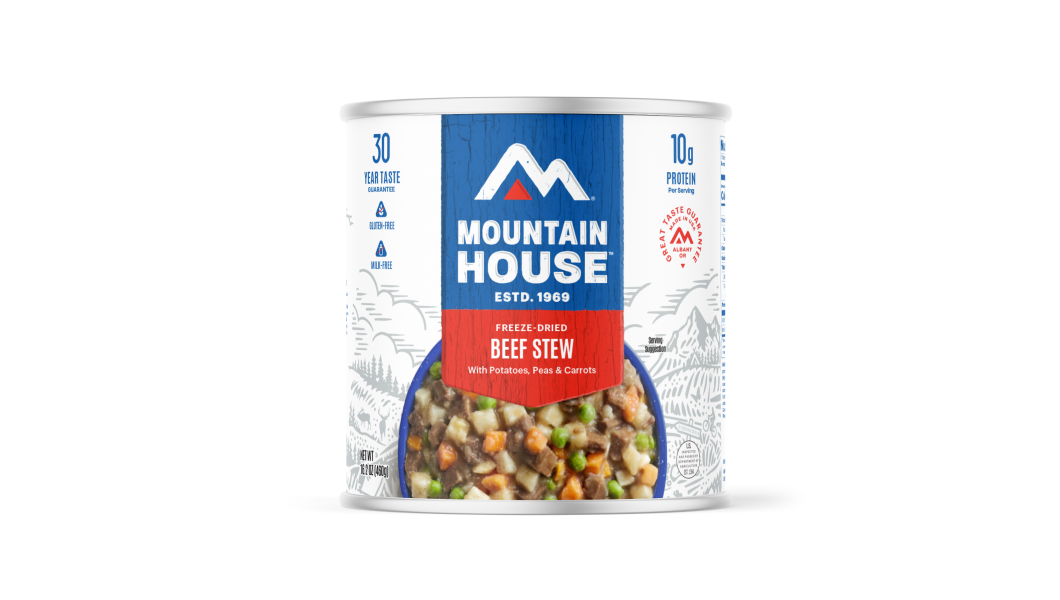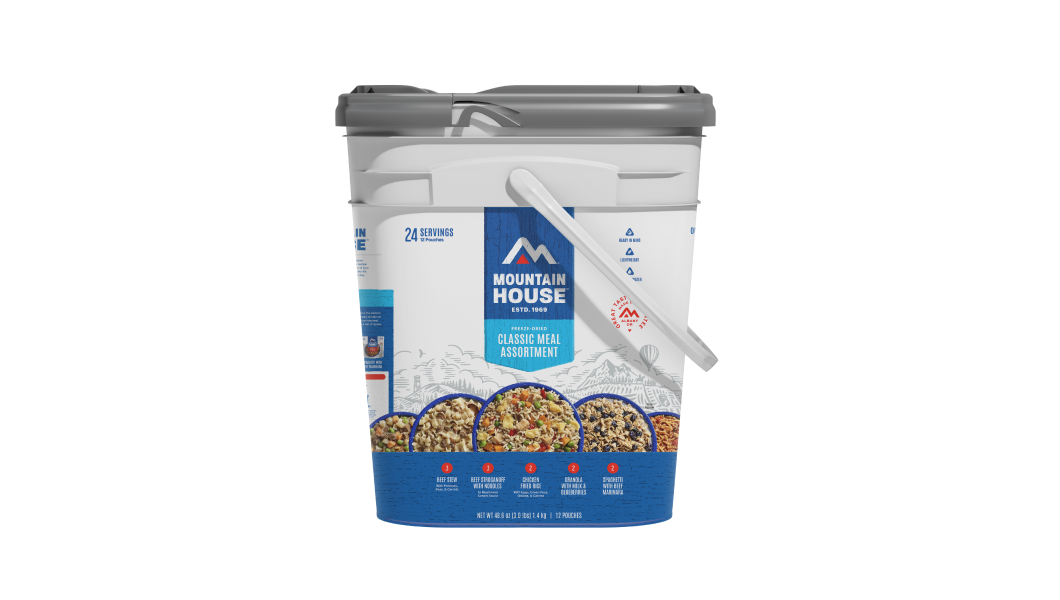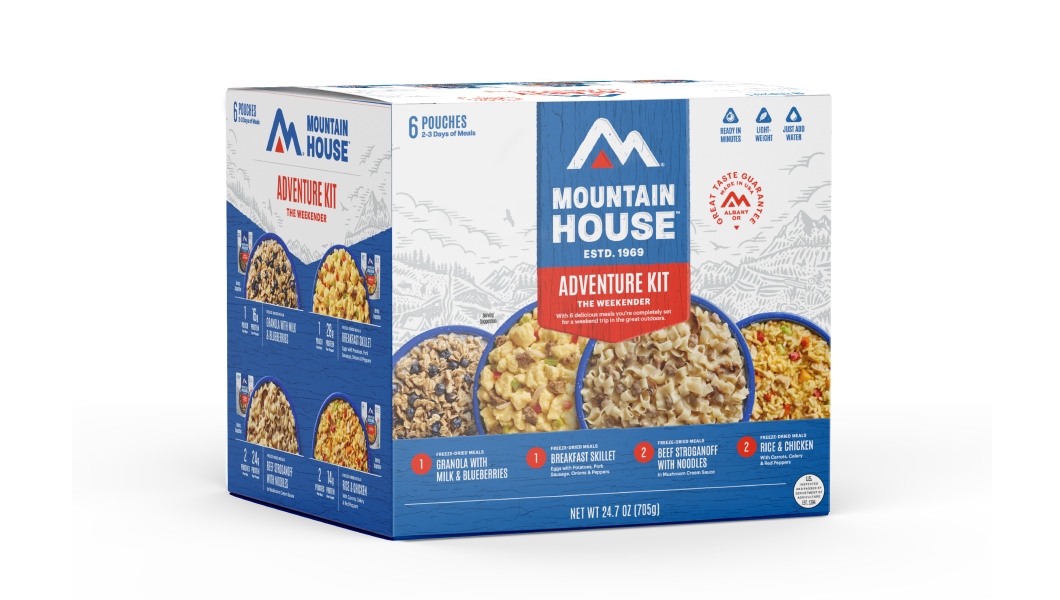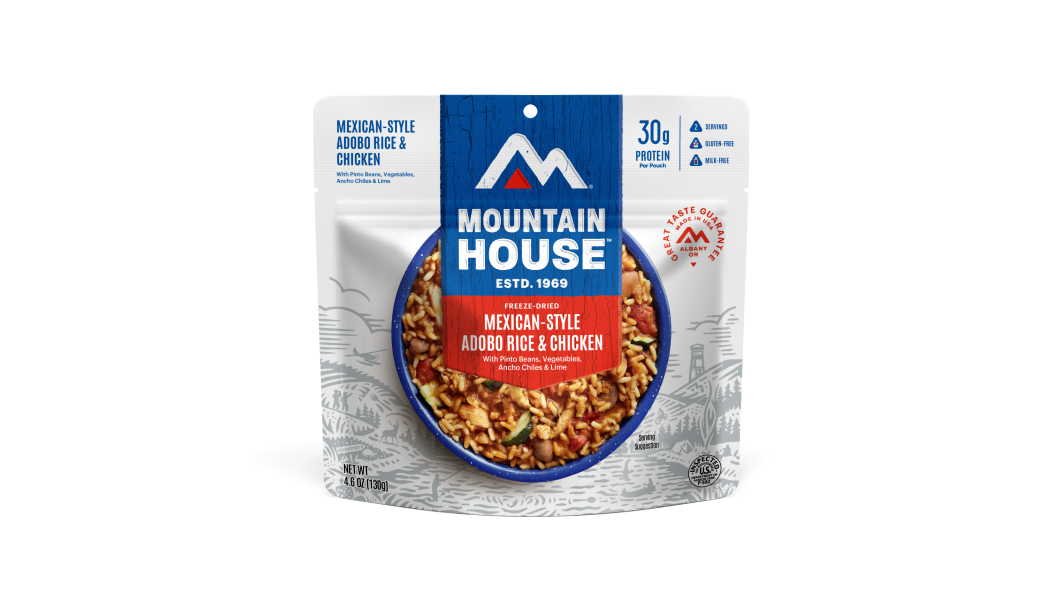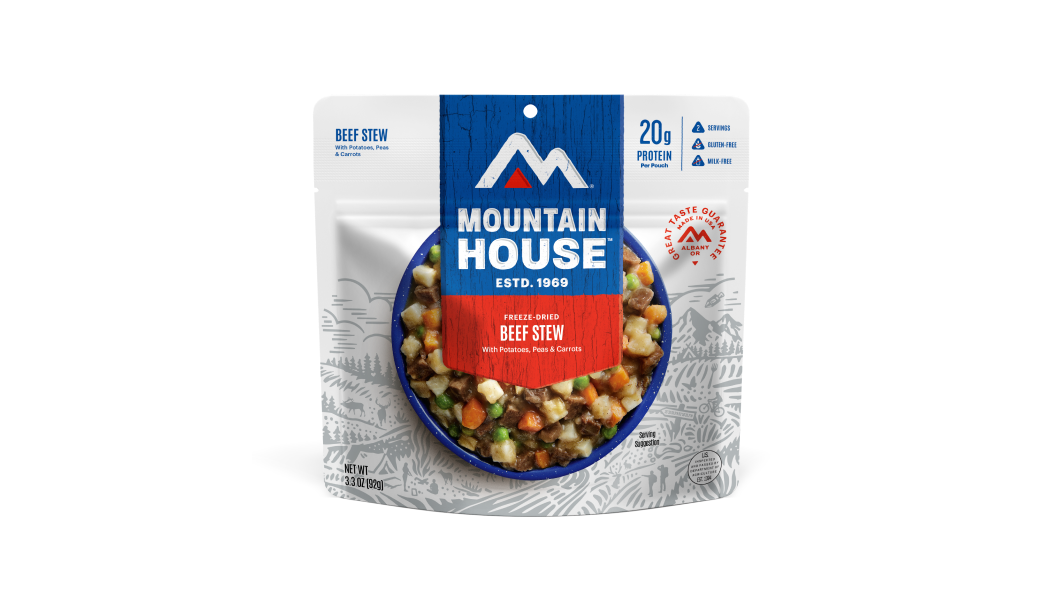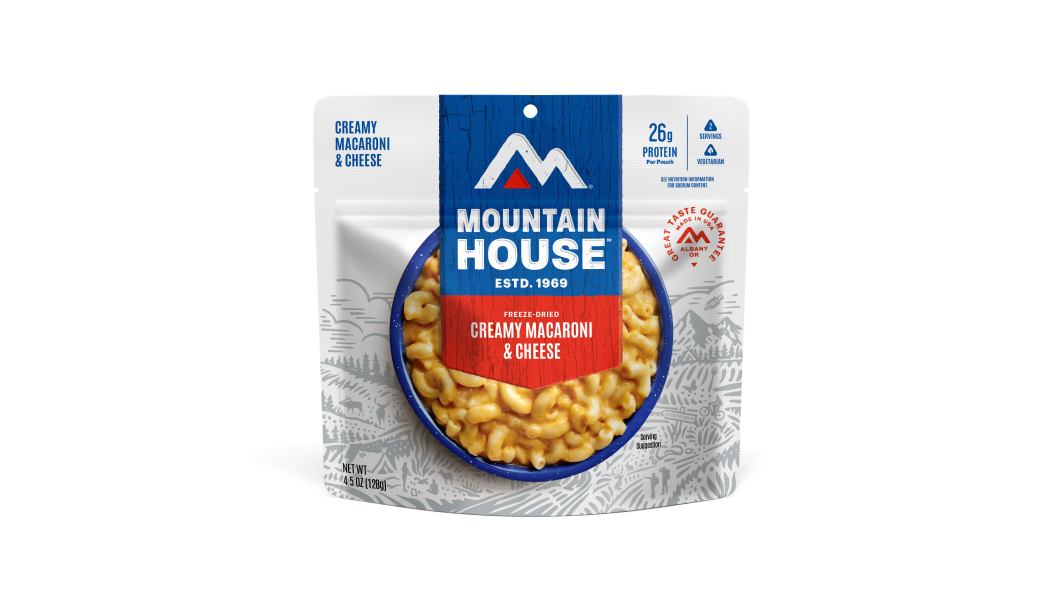Inspired for an Adventure? Check out Beef Stroganoff - Pouch and Beef Stew - Pouch
Free Ground Shipping On All Orders
Over 2,100 Reviews
Add description, images, menus and links to your mega menu
A column with no settings can be used as a spacer
Link to your collections, sales and even external links
Add up to five columns
Add description, images, menus and links to your mega menu
A column with no settings can be used as a spacer
Link to your collections, sales and even external links
Add up to five columns


Camping’s one of those immeasurably rewarding activities that you can enjoy for just about an entire lifetime. And it’s the sort of activity that umbrellas a vast array of equally awesome, equally worthy experiences: solo and communal, extremely remote and right in your community’s backyard, hardcore and laidback, a night or two vs. weeks (months?) on end of trekking.
But maybe you’re new to the camping game. (Can we call it a game? This thing people have been doing, if you want to get technical about it, since approximately Day One?) Giving it a go, in that case, can be pretty intimidating. But when it comes down to it, camping is one of those things that’s super-easy to dip your toes into, and—as we said at the outset—something you can keep relishing, whether you get more intense or downright hardcore about it or not, for decades.
In this guide, we’ll spell out the nuts-and-bolts basics of camping for beginners, giving you a sort of big-picture outline that’ll hopefully inspire you to try it out in whatever way makes you feel comfortable. Throughout, we’ll be linking to some more in-depth articles on particular camping topics we’ve got stockpiled here at the Mountain House blog.
So, without further ado, let’s get to it!
Selecting a Spot to Camp

Choosing the location for your first camping trip is a great place to start. You don’t want to bite off more than you can chew for your first go-around.
Best Type of Camping for First-Timers: Car Camping vs. Backpacking
If you’re new to camping, car camping’s generally the way to go for a first stab at the activity. There are many exceptions, naturally, depending on your location and what’s available, but having a vehicle for support, and using a very accessible, amenity-rich developed frontcountry campground—as in a state or national park, or even a municipal or county greenspace—gives you a nice safety net.
Backpacking—wherein you haul all your gear and supplies on your person—is its own incredible pursuit that opens up huge swaths of wildland (and endless long-distance rambling) as possibilities.
But, generally speaking, it demands more in terms of efficient packing, meal-planning, water management, dealing with (ahem) waste, physical fitness, and wilderness know-how. If you’ve never been camping at all, consider getting your feet wet with car camping. And based on that advice, the rest of this guide will mainly be aimed at tent campers with a vehicle.
(It’s important to note that the whole car camping-backpacking spectrum doesn’t encompass all possible forms of camping. You’ve got, for one thing, various forms of camping by boat. Canoe camping, kayak camping, and packrafting can, like backpacking, get you deep into the wilderness, but give you the advantage of transporting heavy gear in a vessel.)
Campground vs. Dispersed Camping
Not all camping goes down in developed or “official” campgrounds by any means. There may or may not be designated backcountry campsites for, say, backpackers or paddlers in a particular recreational area. And many units of public land in the U.S., including large swaths of National Forest and Bureau of Land Management (BLM) acreage, allow dispersed camping, which may encompass car camping along backroads (always with some regulations to control the activity).
Also, not all designated campgrounds are equal. Many national- and state-park campgrounds, as well as privately owned commercial facilities, are very well developed: accessible and serviced by paved or improved roads, supplied with water spigots and electrical hookups, hosting bathrooms with running water and maybe even showers, sometimes including sheltered cooking and dish-washing areas as well as garbage and recycling bins.
Contrast that kind of setup with your average "primitive” campground in more remote areas, possibly only reached by a long, grueling drive on rough gravel roads, which may lack water, and could include but one (possibly rather forbidding-looking) outhouse/pit toilet.
We’ve already suggested the advantages of first-time campers using an established frontcountry campground well stocked with amenities. Having modern conveniences ready at hand helps you ease into the camping routine while minimizing the stress of being away from the comforts and services of home.
And speaking of home, it’s also not a bad idea to choose a campground not far away for your first try at camping: just in case you forget something really essential, or need to bail—which is completely fine—for whatever reason.
Essential Supplies for Camping
Having the right camping gear makes all the difference when it comes to a successful trip. Here’s a rundown of some of the basic supplies beginner campers need. (You can learn more in our article “The 10 Most Important Camping Supplies.”)

- Tent: A tent actually isn’t essential for camping—but, let’s face it, for first-time camping, it pretty much always is. Factors that go into choosing the right tent for car camping include the number of sleepers and amount of gear that’ll be going in it and the season in which you’ll be camping. We’ve got a whole guide to selecting a tent (for both car camping and backpacking)—check it out!
- Sleeping Bags & Sleeping Pads: To some extent, you can skimp on the quality of your new tent (or used tent!) if you aren’t planning to camp in hardcore conditions. But it’s best not to skimp on the quality of your sleeping bag. Rated by minimum temperature, sleeping bags may include down or synthetic material for insulation, and come in rectangular (which can be zipped together for more internal capacity and coziness) or “mummy” (many a backpacker’s first choice) shapes. And what’ll you lay that sleeping bag atop? Car camping gives you the luxury of bringing along an inflatable air mattress if you’d like, but you can save space (in the car and in the tent)—and prepare yourself for future backpacking—with a sleeping pad, which may be closed-cell foam or an inflatable model. (In chillier weather, layering an inflatable sleeping pad on top of a foam one provides greater insulation from the cold ground.)
- Cookware: From a good campstove to plates, cups, utensils—and, of course, roasting sticks for s’mores purposes—fill a bin or duffel with campsite kitchenware. (You may eventually pare these supplies down to minimalist backpacker level, with a tiny one-burner stove, bowls nesting in a lightweight pot, and the services of ye olde trusty spork.)
- Lighting: For those dark nights navigating the campsite (or making a midnight run to the restroom), be sure you’ve got adequate sources of illumination. Flashlights and lanterns are handy, for sure, but your go-to choice for camping ought to be a headlamp, which frees up your hands. Bring extra batteries and consider solar-powered or hand-crank lights as well.
- Compass & Maps: Fancy electronic navigation systems are great and all, but you should get in the habit right from the start of always bringing old-fashioned manual backups for finding your way. Even car campers ought to have a detailed highway atlas on hand as well as updated, large-scale maps of the road systems within particular National Forest/BLM/state-forest/etc. recreation areas where they’re traveling through. It’s remarkably easy to get lost amid poorly marked (or altogether unmarked) backroads, and even if you’re in range—or using a navigation app that doesn’t require cell connection to operate—car or smartphone mapping programs may route you through sketchy or even impassable road networks in the backcountry. A handheld compass is always a good idea to have along—especially if you intend on doing any hiking, but even sometimes just for navigating by road—though it’s important to actually know how to use it. (We’ve got map and compass starter guides here at the Mountain House blog.)
- Clothing & Personal Items: What outdoor clothing you bring depends on the weather (of course) and what sorts of activities you intend to do while camping. Regardless of the season and the forecast, always bring some warm layers and extra clothes. This category would also include personal toiletries, sunscreen, and the like. And from books to card games, don’t forget campsite entertainment!
- First-Aid Kit: Make sure your packing list includes a properly stocked first-aid kit for those inevitable cuts, scrapes, and dings. (Before each adventure, look over the kit to see whether any resupplies are needed.)
- Insect Repellent: It goes without saying that mosquitoes, plus potentially horseflies, deerflies, no-see-ums, and other charming bloodsuckers, are a fact of life on many a camping trip.
- Chairs: When it comes to camping equipment we always seem determined to forget at home, camp chairs rank high up there. Many developed campgrounds will include picnic tables at sites, but you’ll also want chairs for sitting around the fire or chasing shade during a lazy afternoon.
Planning Meals & Food

You may have heard the old adage that everything tastes better outside. Well, it’s true, and many a camping trip happily revolves around food. From trailside hiking snacks to around-the-picnic-table family breakfasts, let’s dig a little into the subject of the camp kitchen!
When you’re car camping, you don’t have quite the logistics to contend with that a backpacker who’s worried about weight, space, and calorie intake does. And many developed campgrounds either include a store with some basic foods, or put you within minutes of a grocery store. But meal planning for any camping trip is still something of an art.
Some campers enjoy the challenge and novelty of pulling together complicated multi-part meals at the campsite, but in general when it comes to camp cooking, you'll want to err on the side of speed and simplicity. Minimizing the number of dishes you need to wash is a plus, and also food will cool off more quickly outside, so it’s ideal to have a recipe that’s easily timed and synchronized. Hence classic camping foods such as hot dogs roasted over the fire or (but of course) easy-peasy freeze-dried meals such as Mountain House that are light, highly packable, don’t take up cooler space, and come together in piping-hot deliciousness within minutes. To make meal planning even easier, you can build your own Mountain House meal kit to mix and match all your favorite breakfasts and entrees based on your trip length and tastes.
You’ll find a smorgasbord (if you will) of tips and hacks regarding camping meals here at the Mountain House blog, including nearly 50 campsite-ready recipes and a roundup on vegetarian-friendly camping meals.
Safety Tips & Precautions
Safety is paramount when camping. We’ve already stressed the importance of arming yourself with several reliable navigational tools to make sure you don’t get lost en route to the campground or on a hiking trail. Have backup supplies, including extra food and water, warm clothing, and blankets, on hand in case you’re stranded. Automotive essentials, such as spare tires and fluids, are important on any car-camping road trip.
Let others back home (or even family or close friends far away) know of your camping plans. Share where you’re going in detail, the dates you plan to be gone, and any day trip locations you’re thinking of exploring. Arrange to notify them when you’re back home. If you fail to follow up, that contact will be alerted and can help direct authorities to your likely whereabouts.
Know the current rules regarding campfires for the area you’ll be recreating in. Depending on conditions, land managers may impose temporary restrictions or even bans on campfires, and to reduce the risk of sparking a wildfire you need to abide by those. Know how to safely ignite, manage, and extinguish your campfire (more on that shortly).

Understand the kinds of wildlife that call your camping area home, and know best practices in terms of avoiding conflict with these critters. Camping in bear country requires extra diligence in terms of food storage and maintaining a clean campsite. (Learn more with our guides “Food Safety in Bear Country” and “Bear Country 101.”)
Other Beginner Camping Tips
Here are a few other tips, tricks, and suggestions for making your first few camping experiences as safe and enjoyable as possible.
How to Build a Campfire
There are definitely reasons not to have one in certain situations, but there’s no question a campfire is, to many folks, part and parcel of a classic campout. Knowing how to build a campfire is both an essential survival skill and, more prosaically, a point of pride. To help you out, we’ve got an in-depth guide to the ins-and-outs of making a fire, from gathering the right kind of fuel and forming an efficient structure to adequate dousing.
Remember, it’s always best to keep your campfire small, which makes it more manageable. A big roaring bonfire isn’t appropriate at a campsite, all the more so during windy or dry conditions.
Weather Considerations
From cold snaps to lightning-spitting thunderstorms, harsh or severe weather can be especially dangerous for campers. Studying the forecast multiple times as your camping trip approaches and ensuring you have the ability (as with a NOAA weather radio) to receive weather alerts in real-time are essential parts of safe camping.
Expect the unexpected when it comes to the elements, and be ready to break camp quickly if a dangerous storm materializes. (To help you bone up on weather readiness, check out “Refreshing Your Storm Safety Savvy” here at the Mountain House blog.)
Camping Activities
If you’re feeling frazzled by urban hustle-and-bustle or overstressed from worklife, some quality time simply spent in the campsite, soaking up the breeze in the trees, the fresh air, the babble of a nearby river, and the glow of moonlight can work wonders.
But, naturally, there’s much to occupy a more loaded-up camping itinerary if you’d like. Many developed campgrounds, as in national or state parks, have hiking or biking trails accessible right from the loop. You may be able to enjoy boating or fishing nearby, given campgrounds are often situated on bodies of water.
And you can pack all kinds of recreational equipment and games to keep young (or young-at-heart) campers amused.
One special joy of camping is the rich night skies that are often available. Bring along a stargazing guide (or app) and spend some time losing yourself in the vastness of the cosmos, dramatically obscured by light pollution where many people call home.
Enjoy Your First Time Camping

There’s a very, very good chance that your first time camping—probably car camping at a nearby (or relatively so) developed campground—is not going to be your last. And trust that your camping skills and efficiency will sharpen quickly and considerably with a few trips under your belt.
And there’s also a good chance that a few one- or two-night jaunts at accessible frontcountry campgrounds will whet your appetite for outdoor adventure and inspire some more remote dispersed-camping, maybe even backpacking, deeper in the wilds.
From a “glamping” site in a busy campground to the remotest of wilderness settings, look no further than Mountain House freeze-dried meals to keep your camping adventures fueled up. Explore our full camping and backpacking collection!

Best Camping Desserts That Are Easy & Delicious

Minimalist Camping Made Easy: Essential Gear & Tips for Packing Light
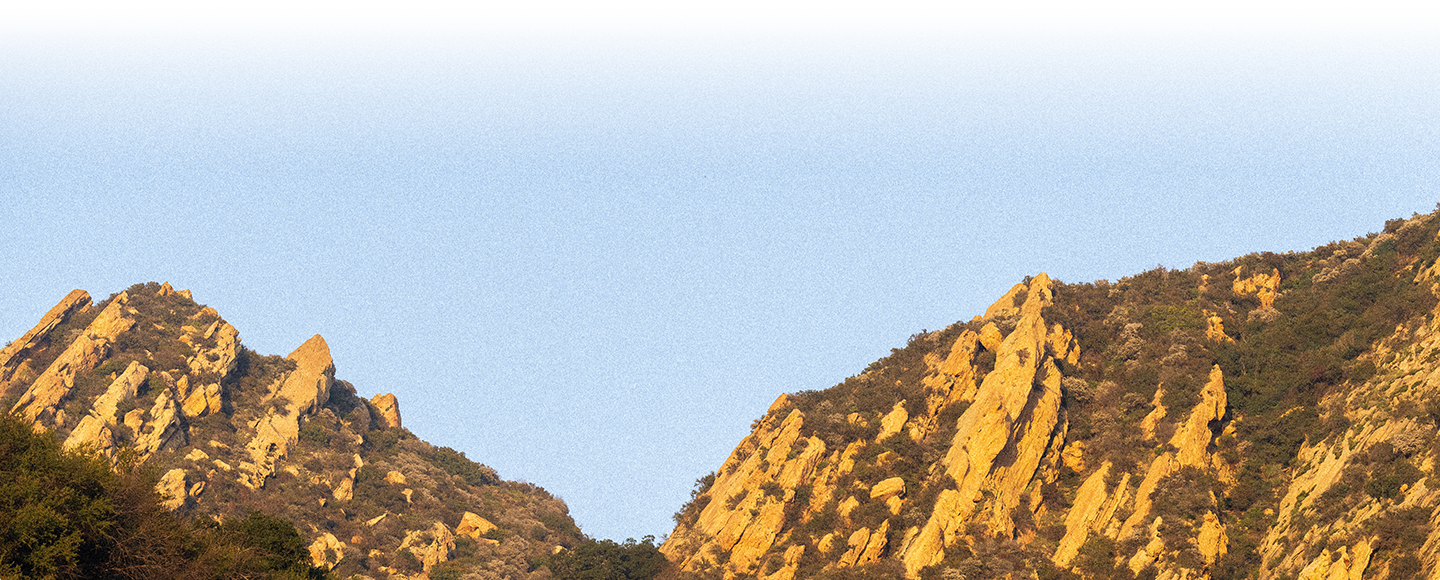
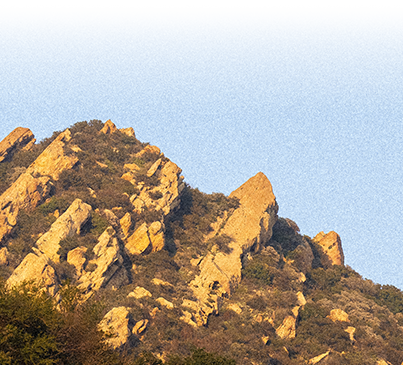
Stay Hungry for Adventure
Sign Up for Delicious Outdoor Meals & Exclusive Offers!
By clicking ‘Join Now’, I agree to the Terms of Service and Privacy Policy.


Join the adventure
©2025 Mountain House — All Rights Reserved.
Join Mountain House Rewards
Your Cart is Empty
Continue ShoppingYour Cart
Subtotal
$0.00
EXPRESS PAYMENT METHODS AVAILABLE IN CHECKOUT
Taxes and Shipping Calculated at Checkout
